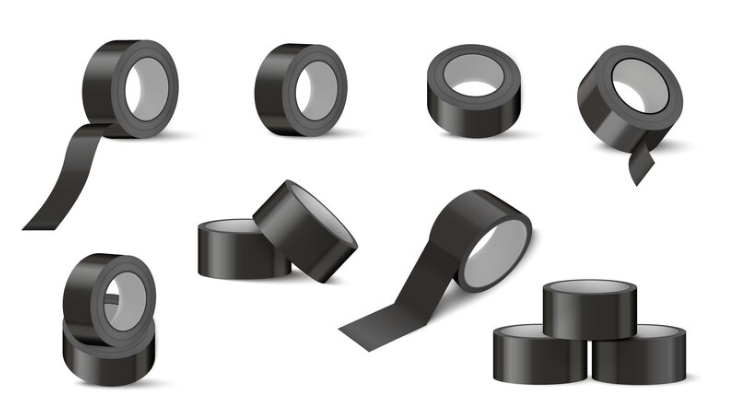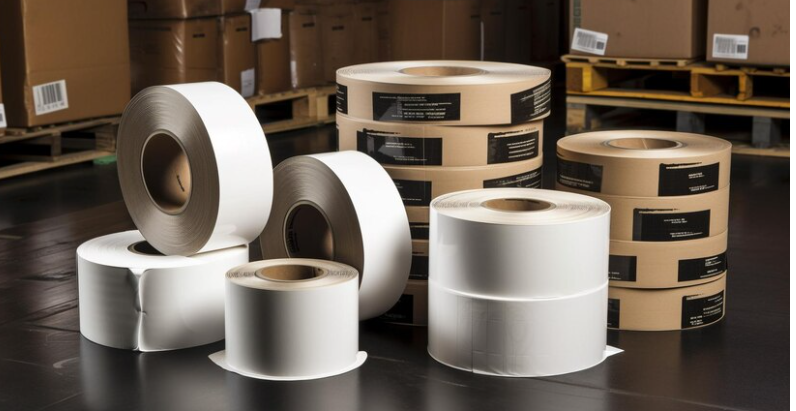Everything You Need to Know About Insulation Tape for Everyday Fixes
Insulation Tape and its Role in Safety and Durability
In the world of industrial applications, construction, or even simple DIY fixes, there’s a silent hero that binds our lives together, often unnoticed and unsung. This unsung hero is none other than insulation tape. With its portfolio of types – each serving a specific purpose – insulation tape is the tapestry of safety and durability in the most inconspicuous yet critical ways. We’re unraveling the uses and types of insulation tape and providing a comprehensive guide for ensuring safety through the right taping practices.
Types of Insulation Tape: An Overview
This tape has a wide range of applications, and not all tapes are created equal. They vary greatly in terms of material, adhesive strength, and most importantly, the voltage they can safely operate at. Here is an overview of common types of covering tapes
PVC Tape
PVC (Polyvinyl Chloride) insulation tape is one of the most widely used types for electrical insulation. It’s flexible, durable, and provides good resistance to abrasion, moisture, alkalis, acid, and varying weather conditions.

Vinyl Electrical Tape
Vinyl tape is a heavy-duty tape commonly used in the professional electrician’s tool kit. It comes in a wider variety of colors for color-coding, indicates correct phase demonstration, and is known for its excellent stretch and elastic memory.

Mastic Tape
This is a thick, gooey tape that is designed to seal and protect electrical connections against moisture, chemicals, and corrosion. Usually, it comprises a layer of butyl rubber adhesive that’s protected by a flexible, UV resistant outer layer.

Rubber Tape
Rubber-tape is generally made from ethylene propylene rubber, silicone rubber, or butyl rubber. It’s great at providing superior elongation with excellent electrical resistivity and dielectric strength.

The Role of Insulation Tape in Electrical Safety
The primary function of this tape is to help protect against electrical shock, provide a barrier for electrical insulation, and temperature resistance. By learning its role and application, you’re not only minimizing risks but also ensuring longevity in your work.
Protect Against Short Circuits
these tapes are used to prevent short circuits. They can cover wires, restricting the entry of water or dust particles that can otherwise cause the passage of current between two contacts.
Electrical Insulation
Proper insulation is paramount to ensure that exposed wires do not come into contact with any conducting material. When wires touch, especially in the presence of humidity or other environmental factors, it can cause a dangerous short circuit.
Color Coding
Different colors of insulation tapes are used to signify different phases and play a vital role in quick visual identification, especially in large electrical installations.
The Versatility of Insulation Tape in Other Applications
While the primary role of insulation tape is in electrical appliances, its versatility makes it useful in numerous other applications.
Automotive
Tapes often used in cars – such as Teflon, fiberglass, or cloth tapes – act as a protective barrier against high temperatures and automotive fluids. They can also provide a temporary fix for wiring insulation.
Plumbing
Waterproof tape is frequently used in plumbing to repair or prevent water leaks in pipes. This kind of tape is typically made of silicone or rubber-based material that can provide an airtight and watertight seal.
Medical Usage
Adhesive tapes used in the medical field are another form of insulation tape that provides protection in securing gauze, bandages, and splints. The materials must be hypoallergenic and offer long-term adhesion without causing wounds to reopen.
Choosing the Right Insulation Tape
Selecting the right tape for the job is as critical as the work itself. Here are a few things to consider when making your selection:
The Voltage Classification
Tapes come with different voltage classifications, designed to operate within specific electrical systems. It’s imperative to choose a tape that is rated for the voltage the application requires.
Temperature Range
Insulation tapes are often expected to work properly within a range of temperatures. Ensure the tape you choose can handle the lowest and highest temperatures of your working environment.
Compatibility with Surfaces
Some tapes are suitable for a variety of surfaces, while others are specifically engineered to adhere to particular materials. Make sure you choose a tape that is compatible with the surface it will be applied to.
Applying Insulation Tape: Best Practices
To make the most of your insulation tape, it’s essential to apply it correctly for a secure and long-lasting seal.
Prepare the Surface
Clean the surface you’ll be taping to remove any dirt, grease, or dust. A clean surface will allow the tape’s adhesive to bond properly and increase the tape’s effectiveness.
Apply Tension
One of the key elements in using electrical tape is to stretch it slightly as you apply it. This tension is crucial as it helps in sealing out the air, which can cause corrosion and moisture accumulation.
Layering
While a snug single wrap can be sufficient for small jobs, larger wires or items requiring more insulation may need multiple layers. Adding a second or even third layer, especially in high-exposure areas, can provide added protection.
Maintaining and Verifying Insulation Tape
Applying insulation tape is not a one-and-done job. Regular maintenance and verification are just as important as the initial application.
Check for Wear and Tear
Over time tapes can degrade and tear. Periodic checks to ensure that the tape is still providing proper insulation and not exposing any conducting material are important in maintaining safety levels.
Retaping when Necessary
If you notice wear, tears, or damage to your insulation tape, it’s crucial to re-tape the area promptly to maintain the integrity and safety of the insulation.
In Summary
Insulation tapes offer an essential layer of protection in a variety of applications and are critical for ensuring safety and durability in the long run. Knowing the right type of tape to use, how to apply it, and when to replace it is crucial for any small business owner, digital marketer, or entrepreneur who is involved in the myriad industries these tapes serve.
The role of insulation tape may go unnoticed, but the impact of using it correctly is anything but subtle; it’s the adhesive thread that holds the safety and durability of our creations together.
these tapes have featured like Reliable, durable, robust, long-lasting, superior, secure, resilient, trustworthy, heavy-duty, steadfast, and high-performance. EverlastGuard” – Enduring Performance in Insulation
- Electrical Insulation: To insulate electrical wires and connections, helping to prevent electrical shock and short circuits.
- Repairing Cords: Fixing damaged insulation on electrical cords, which is essential for safety and functionality.
- Color-Coding: The tape comes in various colors, which is handy for identifying different wires in an electrical system.
- Wire Bundling: It’s used for securing electrical wires together, ensuring that wiring systems stay organized and safe.
- Weatherproofing: Protecting outdoor electrical splices from environmental factors, maintainning connection integrity.
Insulation tape is primarily used in electrical systems for insulating and securing electrical wires within residential, commercial, and industrial settings. It’s also applied in various environments to weatherproof and maintain the integrity of outdoor electrical connections.
Insulation tape is often referred to as ‘electrical tape’ due to its primary application in electrical systems for insulating wires and connections.
Yes, many types of insulation tape are made from PVC (Polyvinyl Chloride). PVC is a popular choice because it is stretchy, provides good electrical insulation, and is resistant to fire, chemicals, and weathering.
The main difference lies in their intended use and properties:
- Insulation Tape: It is specifically designed for electrical purposes, providing high electrical resistance, flame retardance, durability, and flexibility to conform to irregular shapes. It often withstands high voltage, temperature variations, and is weather-resistant.
- Normal Tape (e.g., office tape): This type of tape is typically used for general purposes like holding papers together. It is not suitable for electrical insulation as it does not have the necessary properties to prevent electrical currents from passing through.
